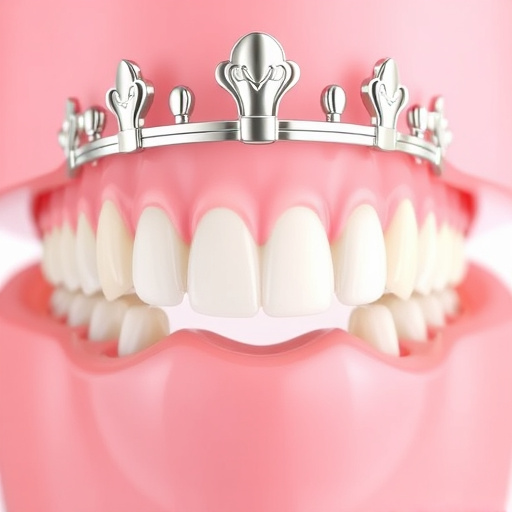Pain-free dentistry enhances patient trust and comfort, encouraging regular check-ups and adherence to oral health practices. This approach, through open communication and education, improves compliance with cleanings, emergencies, and procedures like dental bonding or clear aligners. By eliminating anxiety barriers, pain-free dentistry promotes early issue detection, prevents major health concerns, and facilitates consistent oral hygiene routines for better overall health.
Experience a revolution in dental care with pain-free dentistry—a game-changer in oral health compliance. This approach transforms visits from stressful events into comfortable, stress-free experiences. In this article, we explore strategies that enhance oral health adherence, focusing on how eliminating pain improves long-term health outcomes. By understanding the benefits of pain-free dental practices, you’ll discover a new standard of care that promotes overall well-being.
- Understanding Pain-Free Dental Experiences
- Strategies for Enhancing Oral Health Adherence
- The Impact of Comfortable Dental Care on Long-Term Health
Understanding Pain-Free Dental Experiences

Pain-free dentistry is revolutionizing the way patients perceive and experience oral healthcare. It’s built on the foundation of minimizing or eliminating discomfort during dental procedures, making it accessible and acceptable for even the most anxious individuals. This approach goes beyond simply avoiding pain; it focuses on providing a soothing environment that fosters trust and encourages regular check-ups, which are crucial for maintaining optimal oral health.
For both adults and children’s dentistry, pain-free techniques have proven to enhance compliance with recommended dental care. From routine cleanings to emergency dental care and even the application of dental crowns, these methods ensure patients feel secure and at ease. This not only improves overall patient satisfaction but also contributes to a healthier smile and better oral health outcomes in the long run.
Strategies for Enhancing Oral Health Adherence

Incorporating pain-free dentistry practices significantly enhances oral health compliance. One of the key strategies involves building patient trust through open communication and education about oral hygiene, empowering them to make informed decisions about their dental care. Regular dental check-ups, including comprehensive examinations and general dentistry procedures like dental cleanings, become less daunting when patients understand their significance in disease prevention.
Additionally, pain-free approaches to common procedures such as tooth extractions can drastically improve patient experience, fostering a positive perception of dentistry. This not only encourages regular visits but also promotes better adherence to post-treatment instructions, ultimately contributing to long-term oral health and wellness.
The Impact of Comfortable Dental Care on Long-Term Health

The comfort level a patient experiences during dental procedures plays a significant role in their long-term oral health compliance. Pain-free dentistry goes beyond merely treating symptoms; it encourages individuals to prioritize and maintain their oral well-being. When dental care is comfortable and stress-free, patients are more inclined to stick to regular check-ups, leading to the early detection of potential issues. This proactive approach can prevent minor problems from escalating into major health concerns.
By offering pain-free options such as clear aligners or dental bonding, family dentistry practices cater to a wide range of patient needs and preferences. These modern techniques ensure that individuals who may have avoided dental care due to fear or discomfort can now access the necessary treatments without anxiety. As a result, it becomes easier for patients to maintain consistent oral hygiene routines, further enhancing their overall health and quality of life in the long run.
Pain-free dentistry is not just a luxury, but an essential component of maintaining long-term oral health. By prioritizing patient comfort and adherence to oral hygiene practices, dentists can significantly improve overall health outcomes. Implementing strategies that enhance oral health compliance ensures individuals receive the care they need without associated pain or anxiety, fostering a healthier, happier future.














